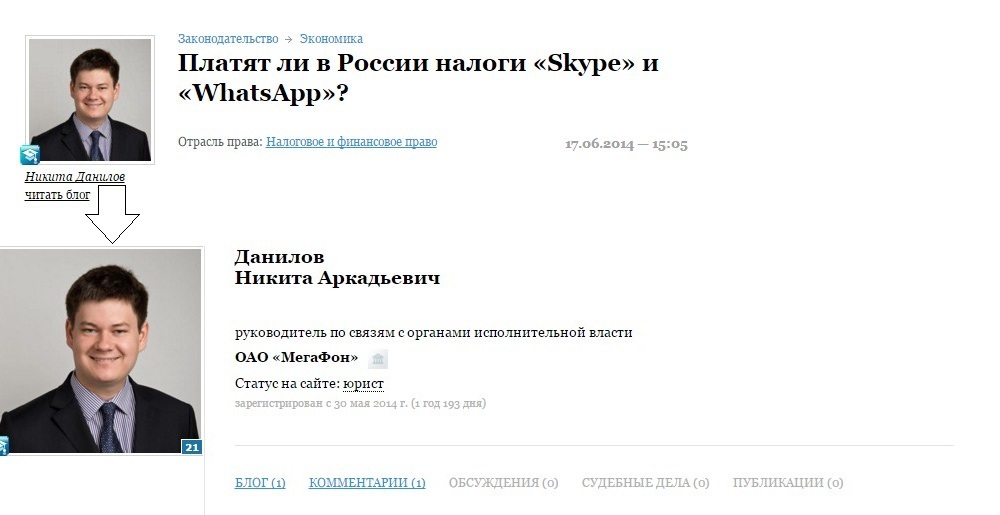Regulation of the activities of instant messengers in Russia: who is to blame and what to do?
At the disposal of "Vedomosti" was a copy of the bill regulating the work of instant messengers in Russia. Its authors propose amendments to the laws “On Information ...” and “On Communications”, supplementing them with the new concept of “information and communication services” - “text, voice, and picture messaging services that are technologically inseparable from third-party communications services persons on data transmission networks of telecom operators. This is primarily about messengers, say the employees of several Internet companies and telecom operators who have read the text of the document; However, theoretically, social networks can also fall under the law - they can also exchange messages.
These are the news came from Roskomnadzor on December 9th . Despite the fact that the RKN denies the reality of the document, the topic does not lose its relevance: the operators of the Big Three have for some years been trying to somehow push through the rules about at least some regulation of the activity of instant messengers, as they attack the operators on all fronts: the number of SMS sent falls every day, and consequently, incomes of operators fall also.
Do you remember how it all started
According to Ovum, due to popular instant messengers, mobile operators lost $ 32.5 billion in 2013 . However, text messaging is only the first misfortune of cellular operators. The second is voice calls, VoIP (Voice over Internet Protocol). And here, analysts predict a great future for messengers. So, according to WhichVoIP.com, by 2017 the global volume of VoIP services will reach $ 82.7 billion. Of course, telecom operators do not want to turn into just an infrastructure provider and they are in a fierce struggle, including in Russia. Since at least 2013, operators have been trying to push the RKN to take action.
Back in 2013, MTS turned to Roskomnadzor with a complaint about the Skype voice call service. Deputy head of Roskomnadzor, Oleg Ivanov, on July 3 sent a letter to MTS informing that the service would not license Skype and regulate its work in Russia. The Law on Communications establishes a “legal framework” in the field of communications in the territory of the Russian Federation and in the territories under the jurisdiction of the Russian Federation, the document says. Skype does not have branches or representative offices in Russia, and the company's legal entity is registered in Luxembourg. Therefore, state control or supervision of Skype’s activities is “impossible” under Russian law. But even if Skype wanted to establish a representative office in Russia, it would still be impossible to license it, Ivanov said: the government approved a list of telecommunications services in 2005 that require a license. The service that Skype provides is not included in it, the official concludes .
')
The second argument cannot be called accurate, since Skype’s activity falls under the “data transfer for the purpose of transmitting voice information” service, but the regulator’s thought vector was understandable: we will not touch the messengers. Telecom operators continued their attempts in public space:

The concept has changed
Hiding behind the “difficult geopolitical situation,” operators were able to make significant progress in regulating the activities of instant messengers. Based on the statement of Vedomosti, it can be concluded that the regulation of the activities of companies that produce instant messengers will be somewhat similar to the regulation of the activity of virtual mobile operators. The specificity of the legal status of a virtual operator is determined by the Order of the Ministry of Communications of the Russian Federation of December 29, 2008 No. 116 “On approval of requirements for the provision of mobile radiotelephone services when using the business model of virtual networks of mobile radiotelephone communications” and is that virtual operators must enter into contracts with real operators . OTT services also want to make contracts with operators.
Otherwise, the telecom operator will be able to prevent the messenger traffic through its networks. This is also surprising, since it completely contradicts the principles of network neutrality - the Federal Antimonopoly Service prepared and sent to the Government of the Russian Federation a “Report on the feasibility of introducing network neutrality principles on telecommunication networks” in pursuance of the Action Plan on “Developing Competition in Telecommunications”.
The report proposes to consolidate the provisions determining the policy of the Russian Federation in the field of network neutrality in the following regulatory acts: in the Federal Law "On Communications", the Rules for interconnecting telecommunication networks, and the Rules for providing communication services. Blocking any traffic is completely contrary to the principles of network neutrality, but, apparently, the principle of network neutrality will be fixed
Misfortune never comes alone
In addition to the notorious blocking of traffic in the article, Vedomosti formulates an indication that companies issuing instant messengers will be recognized by the organizers of the dissemination of information .
The organizer of the dissemination of information on the Internet is a person carrying out activities to ensure the functioning of information systems and (or) programs for electronic computers that are designed and / or used to receive, transmit, deliver and (or) process electronic messages of network users "The Internet".(c) Article 10.1 of the Federal Law "On Information, Information Technologies and Information Protection"
As can be seen from this definition, messengers fall under this definition - but almost everything falls under it, and therefore the decision to apply or not apply the rules on the organizer of information dissemination to this or that service fell on Roskomnadzor’s shoulders. The author of the article about the organizers of the dissemination of information and localization of personal data made a very suitable quotation from the novel “Atlas Shrugged” in the epigraph:
Do you really think that we want these laws to be respected? - began Dr. Ferris. - We want them to be violated ... It is extremely difficult to manage innocent people. The only power that the government possesses is a force capable of breaking the criminal element. Well, if criminals are not enough, you need to create them. There are so many laws that it is impossible for a person to exist without violating them.

The organizer of the dissemination of information must:
1. Store on the territory of the Russian Federation information on the facts of reception, transmission, delivery and (or) processing of voice information, written text, images, sounds or other electronic messages of Internet users and information about these users within six months from the end of the implementation of such actions, as well as to provide the specified information to authorized state bodies carrying out operational investigative activities or ensuring the security of the Russian Federation, in cases Becoming federal laws.
2. To put SORM
3. Notify the ILO on the commencement of activities (Made a website with the ability to comment - write in the ILV).
Sanctions for violation of these duties are not weak:
1. A fine of up to 500 thousand rubles
2. Blocking on the territory of the Russian Federation
The funny thing is that the article about the organizers of the dissemination of information says that its provisions do not apply to communication operators. Thus, the messengers came under a double blow, as they did not seem to be going to recognize them as full-fledged operators.
What to do?
Let's hope that these amendments will be able to repel and they will never receive legal force. It is also necessary to keep in mind the rules about the organizers of the dissemination of information that are already in place (!): With the help of article 10.1 of the Federal Law "On Information ..." you can kill almost any Internet project. If the amendments are passed, then it will be possible to slap the workers of the telecom operators responsible for working with government bodies - the work is enormous.
In the next article we will try to figure out which messengers can fall under the jurisdiction of the Russian Federation and will be required to comply with the norms of Russian law.
Source: https://habr.com/ru/post/355912/
All Articles